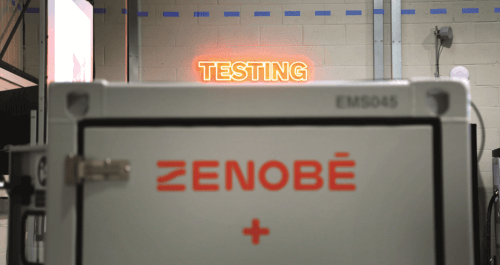
Jonathan Welch attended the opening of Zenobē’s new testing facility in Portsmouth
In late January, CBW was invited to attend the launch of Zenobē’s new Innovation Centre, which the electric fleet and battery specialist says will place Portsmouth at the forefront of zero carbon transport innovation. The company welcomed Portsmouth North MP and Leader of the House of Commons Penny Mordaunt to open the new centre, which offers a test facility for EV charging solutions to help fleet operators make more informed and optimised choices when it comes to switching to an electric fleet.
Located in Portsmouth’s Railway Triangle industrial estate, the official opening took place on 27 January, with speeches from both Penny and Zenobē founder and Director Steven Meersman before Penny symbolically plugged in an Alexander Dennis Enviro400 double-decker, one of a batch destined for National Express West Midlands, and in doing so lighting up a flashing neon ‘Testing’ sign on the wall.
[…]By subscribing you will benefit from:
- Operator & Supplier Profiles
- Face-to-Face Interviews
- Lastest News
- Test Drives and Reviews
- Legal Updates
- Route Focus
- Industry Insider Opinions
- Passenger Perspective
- Vehicle Launches
- and much more!


